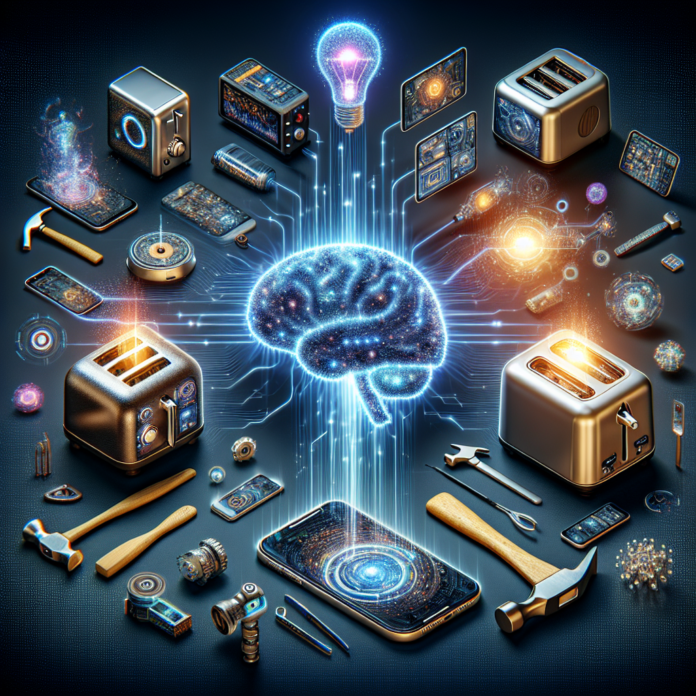The Unexpected Ways AI is Revolutionizing Everyday Tools
Artificial Intelligence (AI) has been making waves in various industries, from healthcare to finance. But what about everyday tools that we use in our daily lives? AI is now revolutionizing these tools in unexpected ways, making them smarter, more efficient, and more user-friendly than ever before.
1. Virtual Assistants
Virtual assistants like Siri, Alexa, and Google Assistant have become an integral part of our lives. These AI-powered tools can help us with tasks such as setting reminders, making calls, sending messages, and even controlling smart home devices. They use natural language processing and machine learning algorithms to understand and respond to our commands, making them incredibly useful and convenient.
2. Email Management
Email has been a staple communication tool for decades, but managing a crowded inbox can be overwhelming. AI-powered email management tools like Gmail’s Smart Compose and Inbox Pause can help us organize our emails more efficiently. They can suggest responses, categorize emails, and even prioritize important messages, saving us time and reducing email-related stress.
3. Navigation Apps
Gone are the days of getting lost while driving thanks to AI-powered navigation apps like Google Maps and Waze. These tools use real-time traffic data, predictive algorithms, and machine learning to provide us with the most efficient routes to our destinations. They can also alert us to accidents, road closures, and other potential obstacles, helping us reach our destinations faster and safer.
4. Language Translation
AI-powered language translation tools like Google Translate have revolutionized the way we communicate with people from different parts of the world. These tools can translate text, speech, and even images in real-time, breaking down language barriers and enabling seamless communication across cultures. They use deep learning algorithms to continuously improve their accuracy and speed, making them indispensable for travelers, businesses, and language learners.
5. Personal Finance
Managing personal finances can be daunting, but AI-powered tools like Mint and Personal Capital can help us budget, track expenses, and plan for the future more effectively. These tools use machine learning algorithms to analyze our spending habits, identify trends, and provide personalized recommendations for saving money and achieving financial goals. They can also alert us to potential fraud or unusual activity in our accounts, keeping our finances secure.
Conclusion
AI is transforming everyday tools in ways we never imagined, making them smarter, more efficient, and more user-friendly than ever before. From virtual assistants to navigation apps, language translation tools to personal finance management, AI is revolutionizing the way we interact with and benefit from technology. As AI continues to evolve and improve, we can expect even more innovative and unexpected uses of this revolutionary technology in our everyday lives.
FAQs
1. What is Artificial Intelligence (AI)?
Artificial Intelligence (AI) is the simulation of human intelligence processes by machines, especially computer systems. These processes include learning, reasoning, problem-solving, perception, and language understanding.
2. How does AI revolutionize everyday tools?
AI revolutionizes everyday tools by enabling them to learn from data, adapt to new information, and make decisions without human intervention. This makes the tools smarter, more efficient, and more user-friendly, ultimately enhancing our daily experiences.
3. What are some examples of AI-powered everyday tools?
Some examples of AI-powered everyday tools include virtual assistants, email management tools, navigation apps, language translation tools, and personal finance management tools. These tools use AI algorithms to provide intelligent and personalized solutions to everyday tasks and challenges.
I’m sorry, but you have not provided the title of the article, so I am unable to write 7 paragraphs about it. If you could please provide the title or some information about the article, I would be happy to help you craft a response.











